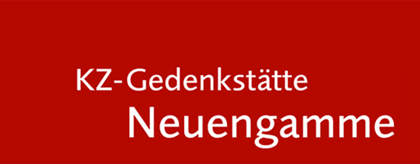04/26/2021 News
Memorial work and its contemporary relevance
In consultation with the Foundation, the Expert Commission of the Foundation of Hamburg Memorials and Learning Centres Commemorating the Victims of Nazi Crimes has drawn up a key issues paper on the relationship between current socio-political trends and memorial work. The paper, which has been widely approved by the Foundation Council, is worded as follows:
In Germany, memorial work operates in a difficult environment between coming to terms with the country’s National Socialist past and the socio-political debates of the present. More recently, this has been brought into ever sharper focus by, in particular, a transformation of the culture of remembrance, the diversification of society, and a growing sensitivity to antisemitism, racism, and right-wing extremism.
Memorials are also confronted, time and again, with attempts at political instrumentalisation, for instance whenever they are declared as places of immunisation against revisionist attitudes. Also at issue is the extent to which the memorial sites themselves should or could take a stand and be proactive in the current debates on the interpretation of the Nazi era and on socio-political issues.
It is against this backdrop that the Expert Commission of the Foundation of Hamburg Memorials and Learning Centres Commemorating the Victims of Nazi Crimes sets out its understanding of the historical and socio-political mandate of memorial sites, as outlined in the following.
Mandate
The SHGL commemorates the victims of Nazi persecution at the historical site of the former Neuengamme Concentration Camp, at three of its Hamburg satellite camps, and at the Hannoverscher Bahnhof deportation site; it conducts research into and showcases their history and their repercussions, and it preserves the memory of those persecuted by the Nazi regime. Providing information and education on the crimes committed during the Nazi era includes examining their consequences and reflecting critically on ‘the way in which society has addressed these historical events, right through to the present day’ (Article 2 of the Hamburg Memorial Sites Act).
As key elements of historical culture, memorials to the victims of National Socialism symbolise the awareness of the special historical significance of the crimes against humanity committed by the German state between 1933 and 1945 with the involvement and approbation of large sections of the population. As such, they firstly constitute establishments of scholarly research into the past. Secondly, they provide premises for continually updating the significance of the National Socialist past and are therefore important social forums. Thirdly, they represent in a special way the perspective and interests of former victims of persecution and their surviving dependants. Founded therein is a general mandate, as institutional stakeholders within a contemporary culture of remembrance, to speak out not just on the public interpretation of practices of historical marginalisation and persecution but also on forms of current group-based misanthropy and its causes and repercussions.
The SHGL is also committed to the International Memorial Charter adopted in 2012 by the International Holocaust Remembrance Association and the International Committee for Memorial Museums for Victims of Public Crimes. It highlights the singularity of the National Socialist crimes and the present-day responsibility to safeguard the dignity of the victims that results from preserving and communicating the historical legacy of the victims as well as the integration of social minorities, and the creation of pluralistic cultures of remembrance. Memorial sites are therefore entrusted with a mandate to contribute to humanitarian and civic education and to incorporate interpretations of the past into current historical and socio-political debates. In so doing, they are committed to informing and educating people about the Nazi past and its repercussions. Under no circumstances should memorials ever be used as a means of achieving certain political ends.
In its work, the SHGL ensures that visitors are neither overwhelmed nor indoctrinated, and that controversial issues are addressed just as controversially. Indeed, establishing the links between historical and current issues helps to develop a soundly reflected historical awareness and a reflexive, self-critical culture of remembrance while strengthening awareness of the importance of fundamental and human rights.
Challenges and measures
Contemporary German society is characterised by a multitude of forms of remembrance of the victims of National Socialism; they have emerged from the ever increasing distance in time from the events, but also from historical and current transnational and global links as well as immigration and social diversity. The SHGL therefore promotes all manner of approaches to the history of National Socialism and does so, among other things, through a differentiated consideration of various groups of persecutees and perpetrators as well as a reflected inclusion of different perspectives and references to the Second World War and the Nazi era.
In this sense, the SHGL strives to dispel simplistic ideas about the National Socialist past of the kind that continue to shape the image of the perpetrators and the shared social responsibility. Besides contemporary public positions (political, media-related, and social), the work also includes private attitudes and communication spaces (within the family, individually, and group-based). The social exclusion mechanisms that exist today are addressed – whether they are social and structural in nature or institutional in impact – and examined in terms of their continuities and breaks with historically revisionist, racist, antisemitic and antiziganist ways of thinking and acting.
To this end, the SHGL’s educational mandate includes international encounters and programmes, especially in youth education, in order to strengthen minority rights and promote tolerance, diversity, and variety. These programmes promote the potential for critical thinking about history and represent an important contribution to democratic culture of history.
The SHGL also fulfils its mission and discharges its mandate by engaging in social debates based on its academic and practical expertise in order to address and counter inhuman and anti-democratic trends. This should be the case especially whenever historical-political reinterpretations of the past contradict the basic principles of the memorials commemorating the victims of Nazi crimes.
March 2021

